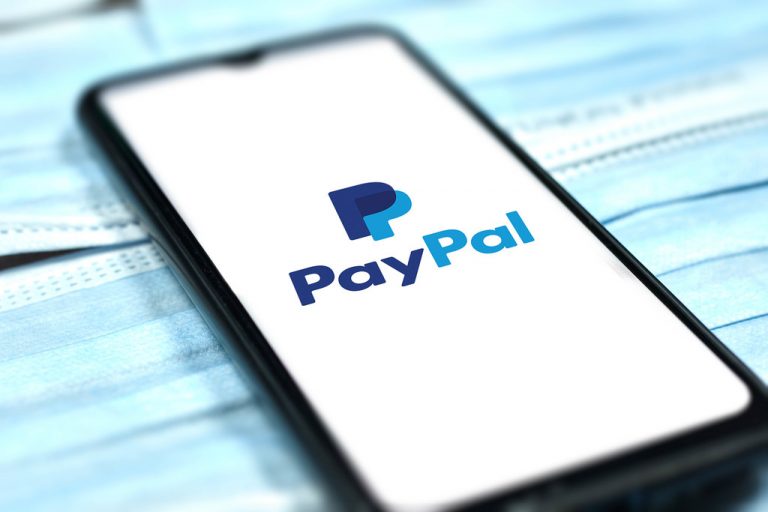Which one of these benefits is associated with checking accounts? This is a common question among today’s bank consumers. As a result, we’ve written this article to assist you. A checking account is an important tool for managing personal finances. All financial institutions can operate checking accounts in the same manner. Let’s find out which of these is an advantage of checking accounts.
There are many account options and fees. Before you decide on a bank or its checking account options, there are many benefits to having a checking account.
According to researchNearly 17 million Americans don’t have a bank account. This can be attributed to a variety of factors, including widespread distrust in financial institutions. A third factor is that many people make poor financial decisions, and are unable open bank accounts.
Nevertheless, a growing number of young Americans believe they shouldn’t need a savings account. To stay abreast of your funds on a routine basis, you’ll need a bank account. To use the enormous multitude of different fintech alternatives open, such as Alipay, Android Pay, Google Wallet, Karma, and PopMoney, to name a few, you’ll need a bank account.
Some customers may be hesitant to open a new bank account because they feel that all financial institutions charge a monthly fee. as per studies.
According to a review There are many options for bank accounts that offer no fees, no thresholds and have over 1000 branches. Even when you’ve had a bad bank encounter, this may be appealing.
Basics of checking accounts
Before going into detail about which of these benefits of checking accounts, it’s a good idea to brush up on the fundamentals of checking accounts. The main use of a checking account is in everyday activities.
Checking accounts can be opened by any financial institution such as an online bank, a traditional bank or credit union. A traditional checking account can be used to deposit and withdraw funds.
Although checking accounts can come in many sizes and shapes, they all share the same basic features.
Deposits
You can deposit at an ATM or in person. You can also ask your boss to set up an automated transfer or transfer money from another bank account.
Withdrawals
Cash withdrawals can be made at any ATM or by you personally. There are no restrictions as to how often money can be withdrawn from a particular account or how much money you can withdraw at once. To avoid paying a monthly fee, some accounts require a minimum balance. As a result, it’s preferable if you don’t dip below that threshold.
Debit/ATM card
This card can be used to withdraw cash at an ATM. A debit card can be used to make online and in-store payments. An ATM can be used to withdraw some cash. Within 14 working days of opening an account, your card should be available. It’s also ready for usage after it’s launched.
Checks
You can make checks with most checking accounts to pay for items using your money.
Which one of these is a benefit of checking accounts?

A bank account is a key step towards financial security and independence. These are the top reasons to open a bank account now.
Protect your money.
A bank account is safe and easy to use to pay for goods. All of us know that having large sums of money on your person to pay rent or power, fuel, food, etc. is not safe or practical.
Storing cash at home, and in a so-called “safe environment,” is loaded with threats such as crime, burns, and natural disasters. It’s possible that you’ll lose most of it. It is possible to lose your accounting records, which could lead you to being in debt at the end each month.
Cashiers’ checks, a debit card, online transfers and direct debits are all possible with a recurring deposit.
Household bank accounts are also protected by the FDIC’s standard investor protection. Cash is covered up to $250,000 per individual. Since the bank’s foundation, clients have benefitted from FDIC insurance cover and the assurance that their investments would be secured up to the FDIC level of protection.
Living expenses include rent, electricity, and cell phone bills. If you don’t even have a bank account, you’ll have to rely on wire transfers or physically sending cash to cover such costs.
Both of these options can be expensive and cumbersome. If you’re a Visa or MasterCard debit card connected to your checking account, you can pay with it. You can also pay bills with checks, even though debit card transactions are prohibited.
Automatic bill pay is a feature that many businesses offer. This allows you to set up an amount each month. This makes it easy to pay on a fixed date.
You can manage your spending and make adjustments as necessary.
Debit cards can be used in conjunction with checking accounts. This allows you to shop online and keep accurate accounting records. It is important to keep track of how far cash moves when you use it.
In a local bank, you can readily review your recent activity and see where you’ve been investing. Having an internet-connected bank account enables constant monitoring of your money considerably easier – and much more available than possessing cash on hand.
A dedicated app is recommended to track and manage bank accounts or credit cards that are added to a portfolio of investments.
Direct deposit allows for quick cash collection.
Direct deposit could be established with your boss if your checking account is open. The checks can’t be taken to the institution or cashed.
Instantly your salary is deposited to your wallet. You can also access cash quickly because it is electronically transferred to your account.
Generally, you’ll need a bank account if you really want to handle your cash quickly and easily. The best banks offer no fees, no thresholds and strong internet capabilities.
Frequently Asked Question
Is it worth opening an account with a bank?
Yes. Yes.
How do I choose a checking account?
The process of opening a checking bank account is relatively straightforward. These are the steps to follow:
Step 1Check out several checking accounts. Are you more comfortable with a regular checking or low-fee online bank account? You can begin the application process for checking accounts by determining which account best suits you.
Step 2: Get a checking account application from your bank (or through the bank’s website). Bring your driver’s license or another unique identifier with you. Banks may require proof of residency. To prove your residency, bring your most recent utility bill or telephone bill.
You’ll also need a small sum of money to make a required starting deposit – at least $25 would suffice.
Step 3: Complete the application and send it to the bank. If you have any questions along the way, the bank is happy to help.
Step 4Wait for your bank to review and approve your application. This should take less than a week. You may be subject to a credit review if you are deemed acceptable by the bank.
You’ll get a bank routing number, a bank checking account number, a debit card, and a package of checks if the bank confirms your application. You’ll also have to agree to the conditions of the checking account contract.
Step 5To automatically deposit your paycheck into your bank account, set up direct deposits with your financial institution or company. This saves you the time of going to the bank each month and lets you get your money faster.
Can I open my checking account with a credit cooperative?
Yes. Yes. Credit unions have been gaining popularity as an alternative to banks. Credit unions offer more personalized services and lower costs than banks.
It might be able offer checking accounts with higher interest rates that non-profits. You’ll also become a credit union member if you use a credit union (most credit unions are owned and operated by members).
You will need to pay a one time membership fee in order to join a credit cooperative. However, credit unions are not as well-connected as larger banks and have fewer branches than bigger banks. Furthermore, they lack the larger financial institutions’ extensive web presence.
Is a debit-card the same as a checking or savings account?
No. You can withdraw money and make deposits from your checking account. A debit card, also known as a transaction card, is connected to your bank accounts.
It can also be used to withdraw money or deposit it at ATMs. It can also be used in virtual and physical shops.
Conclusion
A checking account offers many benefits to its users. These tips will be of great assistance to you if you are looking for more information.



